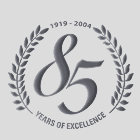| |||||||||||||
 |
|
||||||||||||
Angel Heart (1987) Special Edition Raymond Chandler meets Rosemary’s Baby in the richly atmospheric thriller Angel Heart, which has garnered a devoted cult following (no pun intended) since its release in 1987. Though Hollywood has produced countless private-eye sagas and explorations of the occult, few films have fused the two genres as stylishly as Angel Heart, photographed by Michael Seresin, BSC and directed by Alan Parker. Mickey Rourke is perfectly cast as Harry Angel, a profoundly disheveled 1950s gumshoe hired by enigmatic businessman Louis Cyphre (a carefully manicured Robert De Niro) to track down a 1940s-era crooner named Johnny Favorite, who never paid off debts owed to Cyphre and has since vanished from the face of the earth. As Angel’s search for Favorite leads him from Coney Island to the sweaty streets of New Orleans, everyone who has information on Favorite winds up murdered, with Angel the most likely culprit. The tale takes on an increasingly paranoid tone as the detective begins to wonder if he’s just a pawn in a bizarre conspiracy spearheaded by Cyphre. At the time of its theatrical release, Angel Heart’s considerable stylistic merits were overshadowed by the controversy that arose from a lurid, blood-drenched sex scene between Rourke and Lisa Bonet that had to be trimmed to avoid an X rating in the United States. In retrospect, however, the picture’s visual influence can be noted in such subsequent films as Seven, another dark blend of film noir and religious paranoia. Seresin’s haunting cinematography was recognized by his peers, who ranked the film at #45 in American Cinematographer’s 1999 poll of the 50 best-shot films of the second half of the 20th century. By draining the film of primary hues, Seresin managed the interesting feat of creating a color film with a gritty, black-and-white soul. Rather than heightening the fantastic elements of the story, the filmmakers keep the film firmly grounded in reality (save for a misconceived visual effect in a character’s eyes near the end of the film, a creative decision that Parker now says he regrets). Seresin’s lighting is moody and naturalistic, creating long, harsh shadows that echo Edward Hopper’s lonely portraits of early 20th-century urban America. This new DVD of Angel Heart finally gives this striking film the transfer it has always deserved. Although past home-video transfers looked fine, this new one is nearly pristine, with excellent sharpness and clarity and no noticeable image defects. Color rendition is accurate but not too saturated — a wise choice, given the filmmakers’ aforementioned desire to lend the film an ominous, monochromatic atmosphere. This special-edition DVD is one of those whose copious supplemental material doesn’t exactly add up to a more cohesive understanding of the film. There is a full hour’s worth of documentaries on voodoo, but the misunderstood religion is really a minor plot element in the film. Of greater interest to the movie’s fans are new interviews with Parker and Rourke. The director reveals that Jack Nicholson was a candidate for the role of Cyphre, and he also makes the salient point that “people sell their souls [to the devil] every day of the week — in Hollywood, even more.” Could Angel Heart be the quintessential comment on Hollywood careerism? Ironically enough, the long-fallen star Rourke looks in need of a Johnny Favorite-style career transfusion. Sporting shades and an inexplicable wristband (and cradling a dog in his lap during his interview), the actor admits that by the time he did Angel Heart, he had lost interest in acting, and he only accepted the job because he didn’t want to lose his house. His rueful advice to aspiring thespians: “Don’t do it like I did it.” Also offered are a full feature-length audio commentary by Parker and a shorter, screen-specific “video commentary” with Rourke. A relaxed and insightful Parker elaborates on some of the striking visual motifs in the film. While scouting in New Orleans, the director had noticed that when sunlight darted through electric fans (which are ubiquitous in the humid city), the shadows took on the threatening aura of swords. He thus decided to incorporate the fans as “portents of death” throughout the film. The director also describes the fascinating acting showdowns between the internalizing De Niro and the more mannered Rourke as “a prizefight” between the two gifted performers. Rourke’s short video commentary is amusingly titled “No Com-ment(ary),” as the DVD producers must have realized they caught him on a bad day. The actor is comically unenlightening as an increasingly desperate offscreen voice peppers him with questions about his performance in the film. Also included on the disc are Angel Heart‘s original promotional materials, which comprise rather perfunctory behind-the-scenes footage, production featurettes and interviews. Given its very reasonable price tag of $19.98, this DVD is certainly recommended for Angel Heart fans, as well as connoisseurs of stylish filmmaking. — Chris Pizzello |
|
||||||||||||
|
<< previous || next >> |
|||||||||||||
|
|
|
|
|
|
|||||||||








